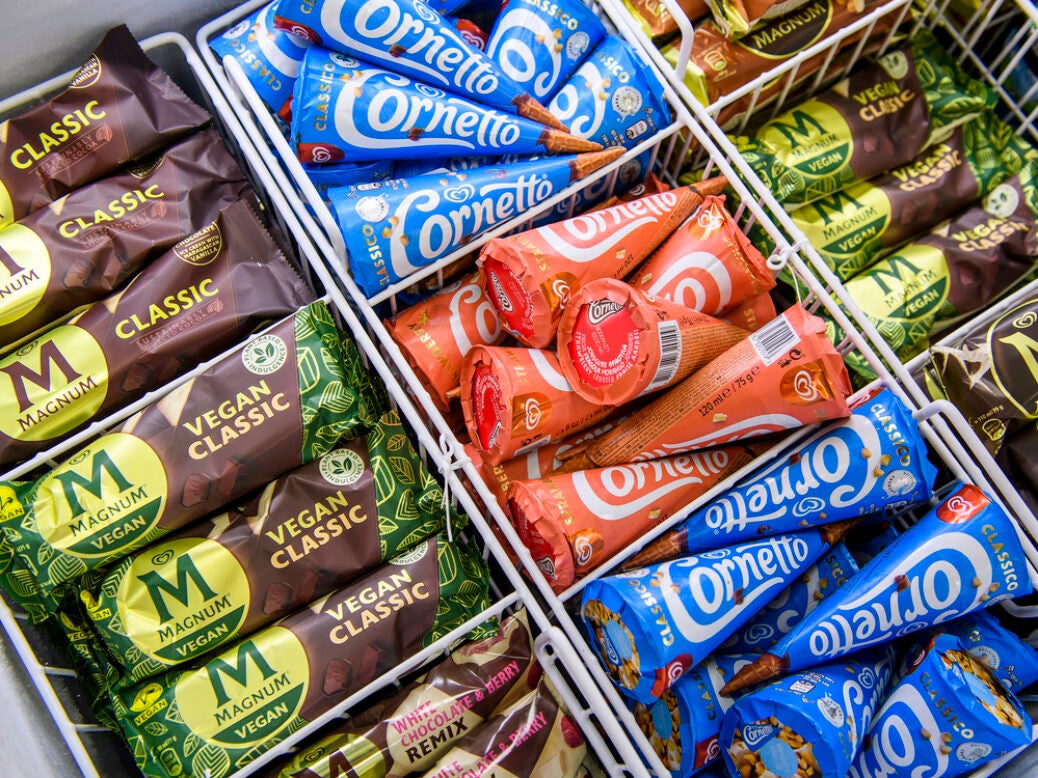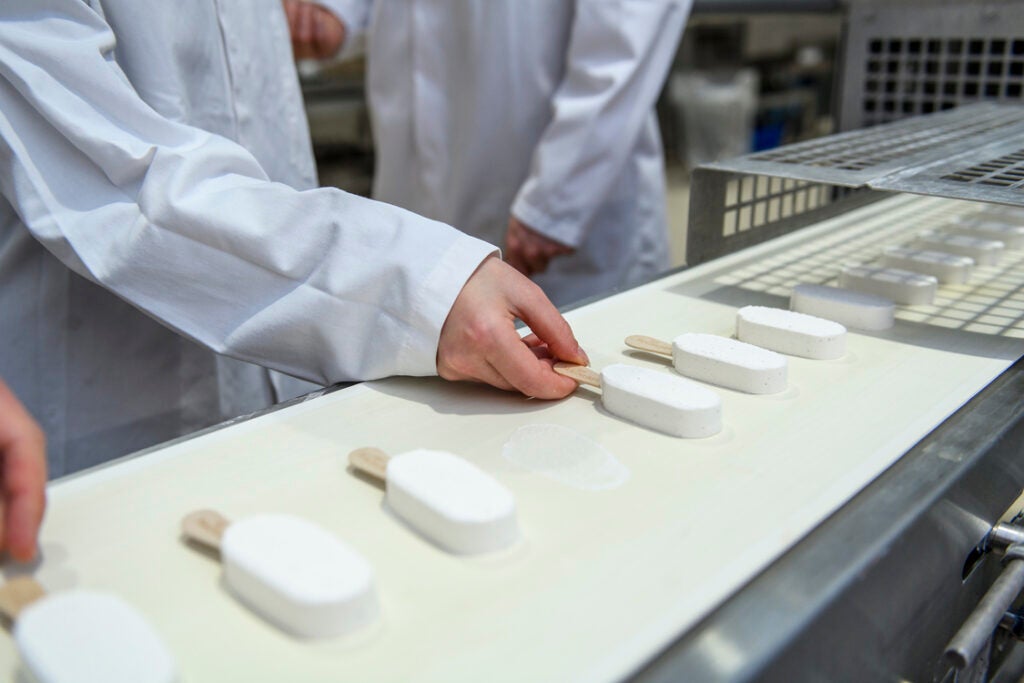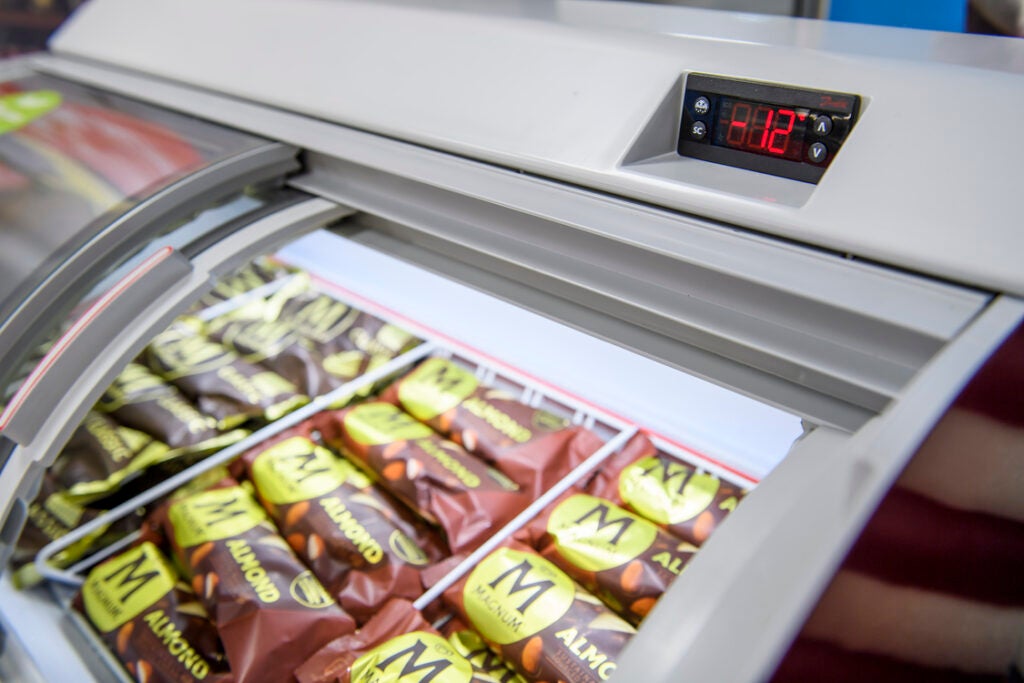
Unilever has cooled talk among analysts the Magnum maker may sell its ice-cream business as the consumer goods giant “loves scale” and the division is booming, its management has said.
As part of a company-wide restructure earlier this year, Unilever siphoned off ice cream into its own division during a summer restructure, prompting speculation over its future.
Matt Close, president of the new division, says there is “no reason to believe” a sale could be on the horizon.
“I know there’s lots of rumours out in the market and we created our own rumour when the when we made the GSK bid as well,” Close told journalists during a trip to a company R&D facility near Bedford in southern England on Monday (21 November).
“But the ice cream business is a big global business and actually if you look at single-category positions, ice cream is our biggest… Unilever loves scale. It loves businesses that can drive value creation and it loves businesses that can really underpin our compass and sustainability commitments.”

Unilever also said it expects the ice cream category will remain resilient despite inflationary headwinds as consumers look to small luxuries – something with which many indulgent snack brands concur.
“Indulgence is key when life is tough,” said Hazel Detsiny, general manager of ice cream across the UK, Europe, Australia and New Zealand. “People say they’re going to cut down on meat and fish and virtually anything else before they cut down on ice cream. And we see that behaviour coming through.”
The restructure in July split Unilever’s brands into five main groups: beauty and wellbeing, personal care, home care, nutrition and ice cream. Ice cream is the biggest single category compared to the likes of deodorant and dressings, Close said. Unilever’s ice cream assets brought in a turnover of EUR6.9bn (US$7.13bn) in 2021.
Looking forward, Close said Unilever is looking to grow the business through its current stable of brands rather than turning to M&A. He said tapping into trends such as vegan and non-dairy is more efficient with established brands over “niche” new ones. “We have a lot of coverage with brands like Magnum, Ben and Jerry’s, Cornetto and Twister.”
He added he will be looking at bringing local brands such as Cornetto into more markets. “Cornetto is a very local brand, it is only really big in seven countries. It’s not very big in many European markets, and in Latin America.” He said the challenge is bringing “that Italian summer feel to more markets”.
However, Close added: “We’ve learned a lot of lessons around not being in too much of a rush to bring a well-performing brand from one market to another.”
He said Unilever had been “in quite a rush” to take Turin-based Grom gelato into new countries, including “flirting with it in China”, before it had been established in Italy. It acquired the brand in 2015. “We’ve decided not to go forward with it in China because we weren’t able to really underpin its provenance before we’ve really made it work in Italy,” he said.

Close insisted becoming a separate business group has allowed the ice-cream division to focus on sustainability.
The group is investing in “cow-free dairy” as part of efforts to reduce the carbon footprint of its ice cream. Close said he sees the use of precision fermentation (creating a dairy-free protein that mimics cow-derived protein) as a “significant trend” for the future.
Unilever is working with start-ups in Europe on the technology and could launch a product next year.
It has also been developing a product that will remain frozen at -12 degrees, versus ice cream’s normal storage temperature of -18. This, the team says, can reduce the energy consumption of ice cream cabinets by between 20 and 30%.
Just Food analysis, September 2022: Unilever will still face questions after Jope’s tumultuous reign




